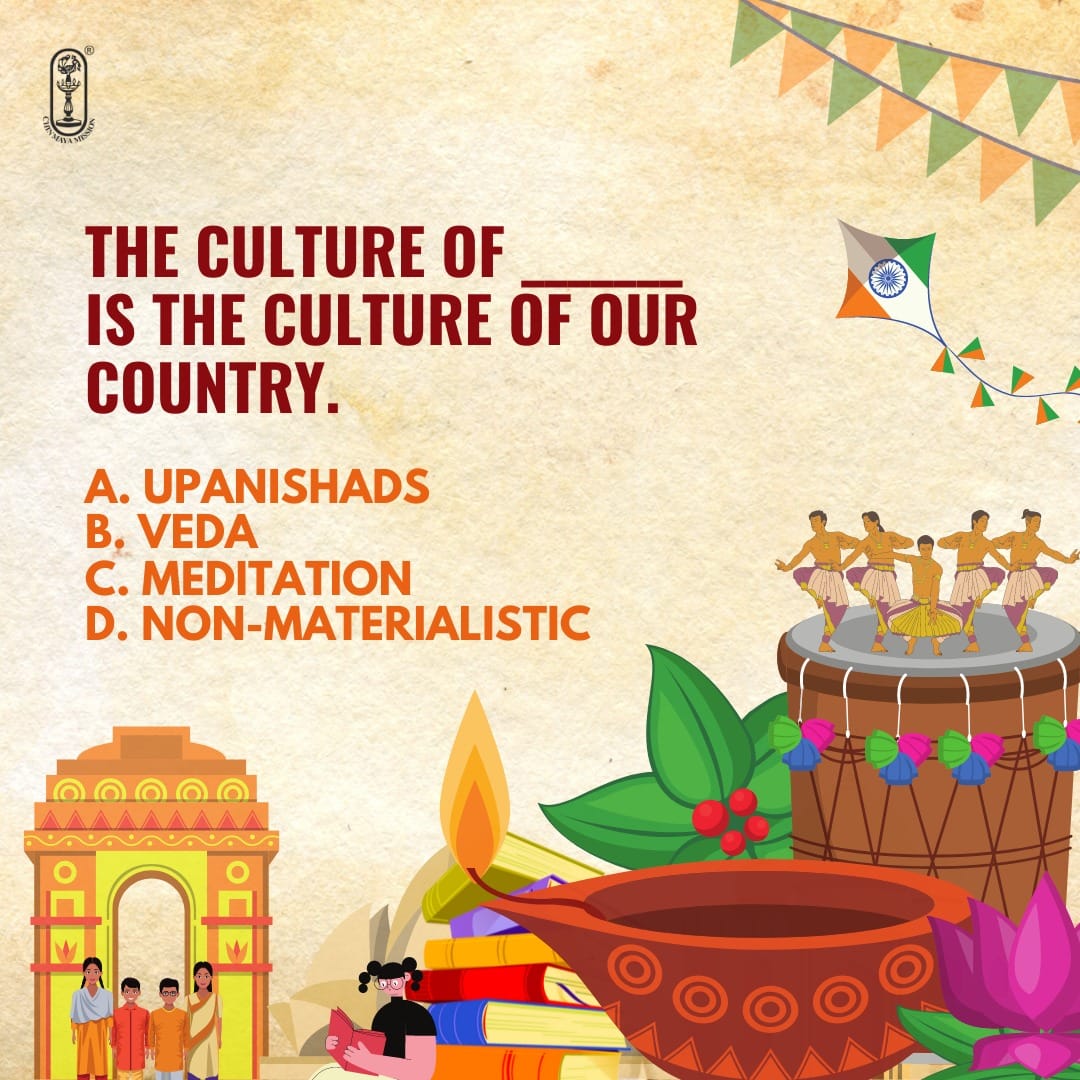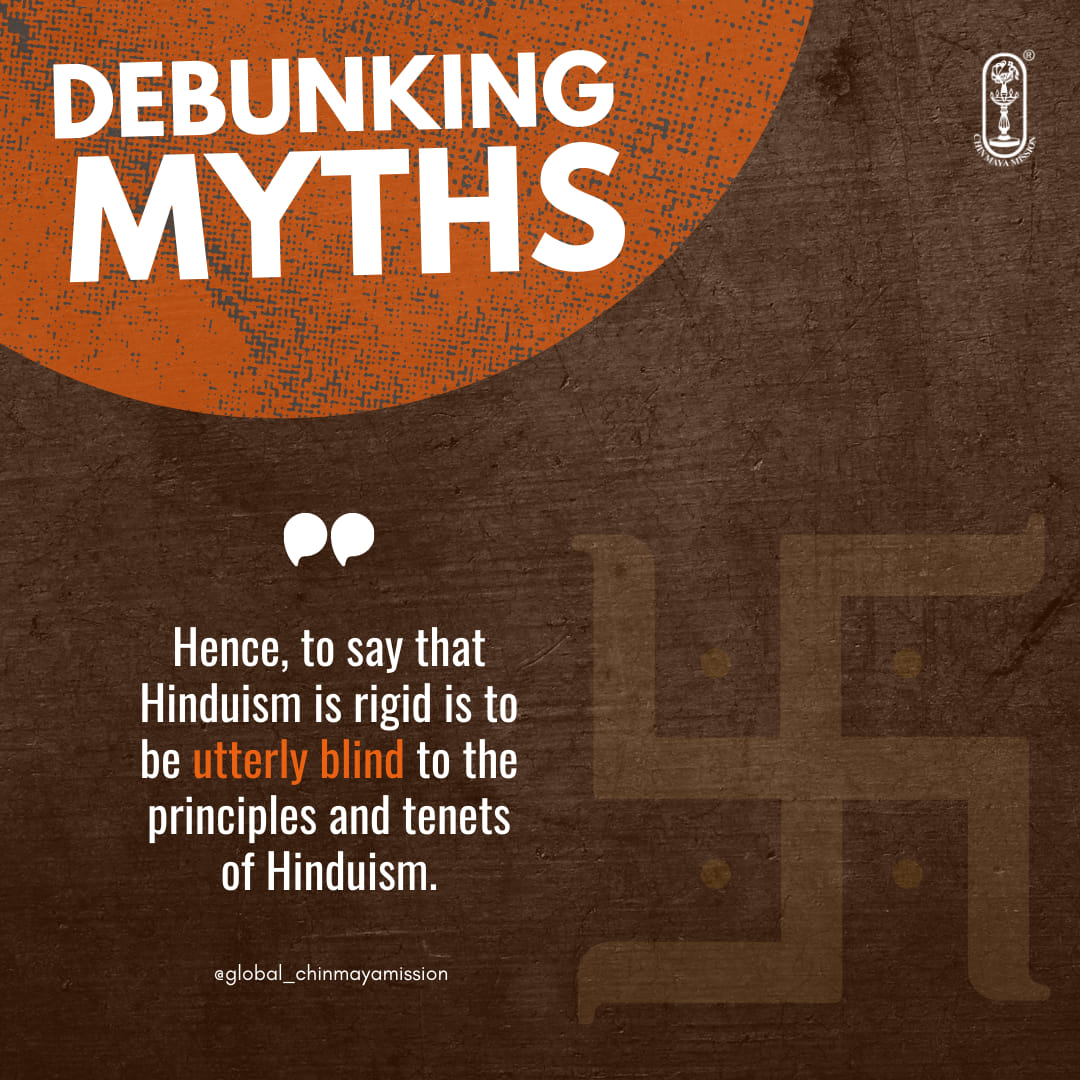The Essence of the Brihadaranyaka Upanishad : 9. Swami Krishnananda.
================================================================
Wednesday, 27 Dec 2023. 06:20.
Scriptures
Upanishads
The Brihadaranyaka Upanishad
Chapter -2.The Absolute and the Universe-5.
Post-9.
================================================================
A higher knowledge is that which recognises an interconnectedness of finitudes amongst themselves. This, again, is a proclamation in the Bhagavad-Gita itself. Where we consider one finite object as everything and cling to it as if it is all— this is the worst kind of knowledge. This happens on account of an obsession of consciousness in respect of a particular object due to the capacity of the object to evoke certain sentiments in the person at a given moment of time. But in higher moments of reflection one begins to realise the interdependence of objects, that no finite object is complete in itself, that completeness lies in an interconnection of one thing with another, so that there comes about the philosophy of collaboration, cooperation, sociable and amicable relationship among beings.
But this, too, is not the highest knowledge. It is not true that finite objects are complete in themselves; it is also not true that they are merely interconnected and therefore one is hanging on the other. All this is only a tentative concession to our vision of the Supreme Being as reflected in space and time. But what it is when it is not conditioned in space and time, that is the Reality. It is neither interconnected nor related; it has no internal variety and it has no external relationships. This is emphasised further on in the passages of this Brahmana of the Upanishad.
All this creation is the manifestation of the One Supreme Being; nevertheless, not one particular object can be taken as the 'All'. Why? Because, the Supreme Being is the 'I', or the Centre, of Consciousness, known as Selfhood, in every particular object. It cannot be regarded as an object because the Self is not an object. The term Self, or Atman, signifies a peculiar awareness in us which defies any kind of externalisation. The I-ness in me, or the 'Selfhood' in me is of such a nature that it cannot be set aside or set apart or isolated from my own self. I myself cannot become my own object. It is impossible for me to segregate myself into another, as other than what I really am in my own experience.
But this is what one actually does in respect of other people and other objects and other things in creation. If everything is an 'I' from the point of view of everyone, it would be unbecoming on the part of any particular individual to regard other such centres as external objects of perception or mere tools for the satisfaction of oneself. Unfortunately, each person regards every other person, and each thing holds every other thing, as an object outside. This situation where there is a universal objectivity alone and nothing of the Self in anything, is called Samsara or bondage, the world of thraldom.
But everything is a Self in itself from its own point of view. So if the point of view of the Selfhood of every object could be contemplated in one's own mind, there would be an awareness suddenly awakened in oneself of the Universal Selfhood of things. So at one moment of time we can have two types of awareness, as we would like to have them. It can be an awareness of Universal Selfhood or it can be an awareness of utter objectivity, fear and sorrow. We can be at once in hell or we can be at once in heaven, as we would like.
The consciousness of the Selfhood or the Atman-nature of everything is called liberation, which is true, because everything is a Self in itself; but everything is an object also from another point of view, the standpoint self-aberration. So, to have an emphasis made on the object-aspect of creation would be to find oneself in Samsara or bondage. One and the same thing is bondage as well as liberation. At one point you can see both heaven and hell. The earth and the heaven are both in one place, cross-sectioned, so that the Absolute and the relative are a single focus of experience. This is a great truth that is revealed to us in very precise passages of this section of this Upanishad.
To be continued
===============================================================










.jpg)

Comments
Post a Comment